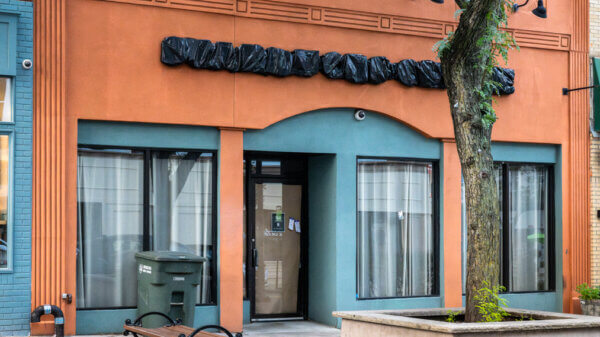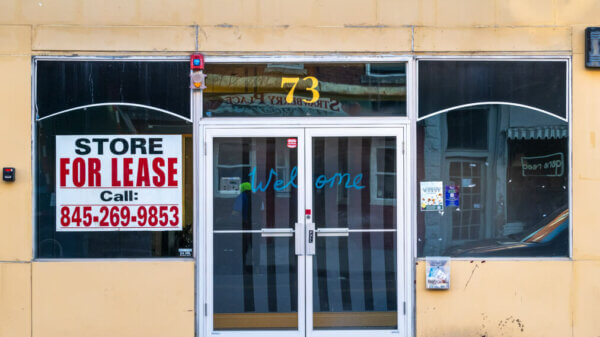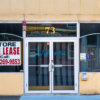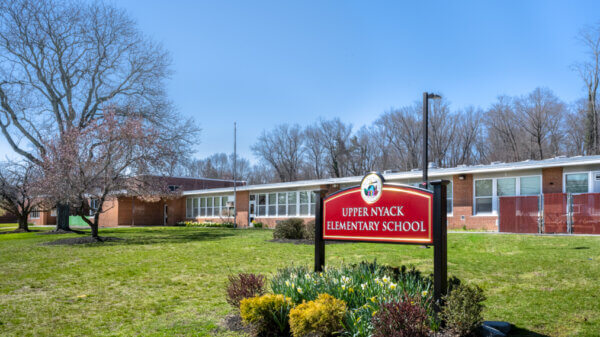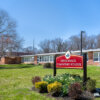
Rockland County Executive Ed Day (left), NYS Governor Andrew Cuomo (right).
by Rockland County Executive Ed Day
Today I join with Rockland County residents and commuters to voice my concern over the imminent toll increases for the new Mario Cuomo Bridge.
I have stated for the record on many occasions that any increased toll for the new bridge MUST include a significantly reduced toll rate for Rockland residents–a discount well beyond the discount that will be provided for all commuters via E-ZPass. With the looming congestion pricing for Manhattan, Rocklanders will be doubly impacted by tolls unless deep discounts or exemptions are provided in both cases.
As you may know, I have expressed concern for how the new bridge will be funded for many years, stating that it cannot be done on the backs of Rockland residents who have very few viable options other than driving.
The cost for the new bridge must be shared by all, just as the revenue the old bridge generated for decades went to support the entire Thruway system. In fact, much of that toll revenue was wasted away in the Thruway’s takeover of the Canal Authority decades ago.
According to the New York State Comptroller’s August 2012 “Assessment of the Thruway Authority’s Finances and Proposed Toll Increase,” the Canal System, in fact, consumed more than $1.1 billion of Thruway resources. Even more was consumed until it was finally transferred to NYPA in 2017, with the Comptroller estimating that Canal Authority expenses would consume an even larger share of total Thruway expenses between 2012 and 2016 than during previous years. Based on the 2004 Vollmer Report, the NYS Canal System’s operation and maintenance costs were approximately $70 million per year, but annual revenues were less than $2 million. Conversely, the Tappan Zee Bridge toll barrier that year collected more than $74 million.
These lost funds, had they not been used to plug the financial hole of another State Authority, could be used now to pay for this bridge and hold down tolls.
Ms. Bricetti–you are especially aware of the negative economic impacts the Canal Authority had on the Thruway coffers. Under your leadership, the Business Council of NY State opposed the transfer of the Canal Authority to the Power Authority in the 2016- 17 budget, stating that the Canal Authority would, “be a drain on the finances of the Power Authority.”
There have been other missed opportunities during this project to see it funded properly. The Federal Government saw fit to LOAN the Thruway Authority $1.6 billion to fund construction of this Hudson River crossing; while not that long ago they fully funded a notorious “Bridge to Nowhere” in Alaska. Payments on the loan will begin in 2023, further stressing the Thruway system.
In addition, New York State has had several recent windfalls in bank settlement funds, $9 billion confirmed and reported to be as much as $12 billion. This money could have and should have been spent supporting this critical infrastructure project instead of going to fund budget shortfalls elsewhere around the state. These missed opportunities cannot be allowed to negatively affect our residents, commuters and the commerce that flows through this corridor.
I recently met with NYS Thruway Executive Director Matthew Driscoll, and in resulting correspondence from his office, I am told that the objective of the Panel is, among other things, to review potential resident discount programs. It is my sincere hope that this responsibility of the Panel is given the utmost consideration and that the discount that results not be a token one.
The bottom line is that Rockland County residents must not be held financially responsible for the poor fiscal management of our state’s past, nor should they foot the bill for a project that should have been the Thruway Authority’s responsibility in the first place. Bridge commuters paid tolls for decades that created nearly one-fifth of the Thruway Authority’s toll revenue. As such, I ask today that the Rockland County resident passenger toll rate for the new bridge be held to current levels, with no 2020 increase.
Perhaps an even bigger pill for residents to swallow in facing potential toll increases is the comparison of the tolls paid by passenger vehicles versus the tolls paid by commercial vehicles. Back in October 2000, the Thruway Board approved a truck toll increase for 5- axle vehicles from $10 to $20 during rush hours. Almost 20 years later, the truck toll rate has increased less than $13, with the toll for a 5-axle truck now at only $32.75 (peak).
As investigated and reported earlier this year by the Journal News, truck traffic on the bridge increased to 2.4 million in 2017–an increase of a million trucks in just seven years. This is due, in no small part, to the extremely low truck tolls. Commuters on the bridge have had to contend with this increased truck traffic, and the new bridge is seeing vastly increased wear and tear from the higher volume of 18-wheelers. According to a report by Jacobs Civil Consultants for the Thruway Authority, referenced in the 2012 Comptrollers Assessment–a single 80,000-pound, 18-wheel truck creates the same amount of damage as 9,600 passenger vehicles.
There is no question that it is well past time that the commercial toll rates for the bridge be dramatically increased.
The truck lobbyists and teamsters will say increasing the truck tolls will hurt the economy and have a negative impact on trucking companies and truck drivers. That the increases will be passed onto consumers, and effects will be felt throughout the state. Director Miranda can likely attest to this position.
Those assertions may sound reasonable–at first–until you consider that the truck tolls for our Bridge are some of the lowest commercial tolls in the entire nation, and that truck tolls throughout the entire Thruway corridor have been kept artificially low for decades. The 45% commercial toll increase for the Thruway corridor slated for 2012 would have made the truck tolls along the Thruway at least comparable to other major corridor tolls. Unfortunately, that was never approved. The combination of this factor, with the extremely low bridge toll, makes an 18-wheeler trip down the Thruway and across the bridge ridiculously affordable.
That having been said, I am concerned with the negative economic impact that increased commercial tolls will have on Rockland County businesses, which is why I am calling for a discount for commercial vehicles registered to Rockland County employers.
I am also gravely concerned about how increased passenger tolls will negatively impact our economic development efforts here in Rockland County. An exorbitant toll cost could be the difference between people deciding to come to Rockland County or not, whether it’s to shop, to work or to live and commute from here. This is a Hudson Valley bridge connecting two Hudson Valley communities. Significantly raising tolls beyond what they already are would bring us into the realm of NYC-bound crossings, which it is not.
Finally, I ask that the Thruway make sincere efforts to ensure that all other means of paying for the bridge are pursued before raising tolls, and that mechanisms are put in place that will assure residents and elected officials alike that toll monies are being spent appropriately. I would respectfully request that that the Thruway Board commit to a fiscal management plan that ensures all revenue generated at this Bridge be dedicated to ONLY this Bridge. The Tappan Zee Bridge was a cash cow for the Thruway for decades, second only to the Woodbury to Buffalo trips in toll revenue. The vast majority of that money was spent somewhere else. We can no longer allow revenue generated at this Hudson Valley crossing to be spent anywhere else. $152 million a year in tolls–nearly 20 percent of all annual toll revenue collected by the Thruway Authority–can go a long way to paying bridge costs.
As traffic congestion worsens, transit improvements must also be a priority for this corridor. Therefore, any toll increase must also set aside a percentage of revenue for dedicated transit capital improvements between Rockland and Westchester.
I strongly urge that you take each of these considerations very seriously, and that you take every action possible to prevent another difficult burden from being placed on Rockland County residents.
Ed Day is the County Executive for Rockland County, NY.
See also:
- Carlucci: No Toll Hike on Mario Cuomo Tappan Zee Bridge, 7/20/2019
- Low-Hogan: Rockland Residents Require Discounted MCB Tolls, 7/21/2019



